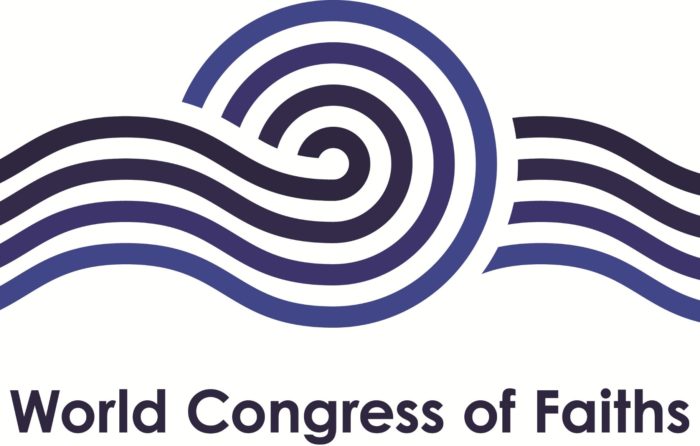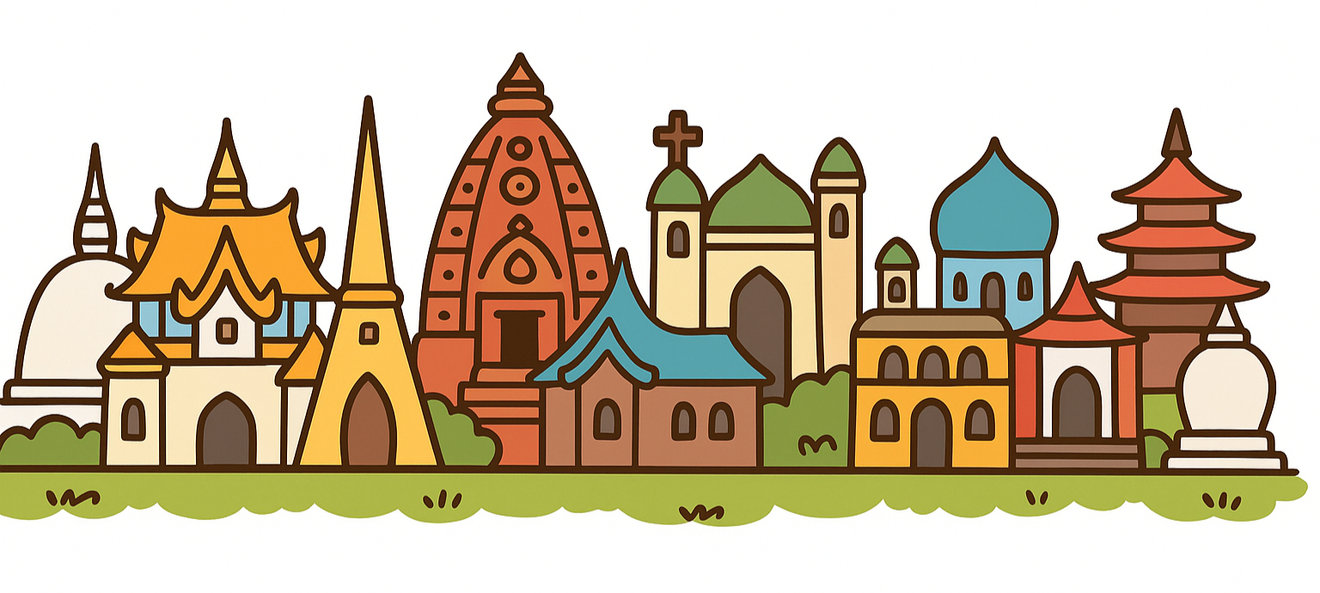About Us

The World Congress of Faiths is open to all who share its aims and interests regardless of their faith.
Our aim is to promote and share the personal values and public value of spiritual life.
You can become a member and join one of the oldest interfaith bodies in the world, with a very rich history.
We offer the freedom and opportunities to meet, explore, challenge and understand different faith traditions through events from small events to large conferences, visits, talks, partnership working, on-line conversation and publications, including our unique international journal, Interreligious Insight.
>>> Marcus Braybrooke: Francis Younghusband – Explorer, Mystic, Interfaith Pioneer. Founder of the WCF
( TIO – The Interfaith Observer, Seattle University)
>>> Sir Francis Younghusband, 1863 – 1942 (Britannica)
>>> Marcus Braybrooke: A Wider Vision: A History of the World Congress of Faiths, 1936 – 1996 (Religion online) >>>

Deutsche Beschreibung
Der in Großbritannien beheimatete Weltkongress der Religionen steht allen offen, die seine Ziele und Interessen teilen, unabhängig von ihrem Glauben. Unser Ziel ist es, die persönlichen Werte und den öffentlichen Wert des spirituellen Lebens zu fördern und zu teilen. Sie können Mitglied werden und sich einer der ältesten interreligiösen Organisationen der Welt mit einer sehr reichen Geschichte anschließen.
Wir bieten Ihnen die Freiheit und die Möglichkeit, verschiedene Glaubensrichtungen kennenzulernen, zu erforschen, zu hinterfragen und zu verstehen – durch Veranstaltungen aller Art, von kleinen Events bis hin zu großen Konferenzen, Besuchen, Vorträgen, Partnerschaften, Online-Gesprächen und Publikationen, darunter unsere einzigartige internationale Zeitschrift „Interreligious Insight“.
Kontakt: https://www.worldfaiths.org/contactus
WCF auf Facebook: https://www.facebook.com/worldfaiths/

DIALOGUE FOR SPIRITUAL LIFE
>>> Unaussprechliche Freude –
eine Anthologie von Dokumenten des World Congress of Faiths (WCF) zum interreligiösen Verstehen (IRB Blog-Archiv) >>>
>>> Die Zeitschrift „Interreligious Insight“ (Auswahl von Ausgaben: IRB Blog-Archiv) >>>
>>> Themen Beispiel:
Interreligious Insight, Vol. 21, No. 2, December 2023:
Über Hoffnung nachdenken – Friedensarbeit (IRB Blog-Archiv) >>>

>>> WCF – AUTUMN 2025 NEWSLETTER <<<
A message from the Chair of the Executive Committee: “The Right to be Different”
[ Eine Botschaft vom Vorsitzenden des Exekutivkomitees: „Das Recht, anders zu sein“ ]
‘A Globe at War’ is how one article headline described the world’s current international state of affairs, and it is hard to disagree with it. The Russia-Ukraine conflict seems as far away as ever from any hope for a cessation of hostilities; the Israel-Palestine devastation has agreed a ceasefire, though it is as fragile as a butterfly’s delicate wing; the violence enacted in the Darfur region of Sudan is as shocking to the core as any conflict can be – and so on. And we wonder about the role of religion in each of these war-torn regions. The assertion that religion is to blame for these and other atrocities is often exaggerated, but neither is religion innocent. The interfaith movement has always held one of its goals to be a harbinger of peace, but it remains a work-in-progress to say the least.
WCF has from the beginning of its life claimed the building of peace as one of its primary objectives. In this vein, our recent Younghusband lecture for 2025 was given by a distinguished long-time veteran campaigner for reconciliation, peace and justice, interfaith dialogue and understanding, Oliver McTernan. Oliver’s engaging title was ‘The Gaza War and the Dismantling of the Rule-Based International Order – the Global Consequences’, and he did not disappoint. Recalling his own background involvement in the Irish context, conflicts between Republicans and Loyalists, Catholics and Protestants, and the eventual embrace of the Good Friday Agreement by both sides, he was clear that the Middle East conflict can only hope to approach anything resembling a resolution if both sides recognised the right of the other to exist and be different. For religious-minded people, that involves recognising something of the divine in others.
Interfaith work in the past has often championed the value of toleration as the public/political means for enabling multicultural and multifaith societies to exist and even flourish. This was a reasonable step to promote in the post-war years of the twentieth century. But it has always been recognised as a first step. Oliver drew our attention to the need for different sides in a conflict to recognise the other to be different if any resolution to conflict has an even tiny chance of coming to fruition. Recognising the other’s right to be different is a bedrock value for interfaith relationships. At its deepest level this right to be different is more than a right to exist in political and social space; it is also a moral and religious right. And this is the driving force of all interreligious dialogue.
Oliver’s lecture will be published in our forthcoming December edition of Interreligious Insight and I hope you will take time to read and ponder its challenging call to all of us to play our part in peace-making built on the principle of the right to be different.
December is a month when all of us chime with the religious value of ‘light shining in the darkness’ no matter what tradition to which we belong. May we hold on to the hope represented by this aspirational light and celebrate its promise as we reach out to others who are different.
Alan Race — Chair, WCF



